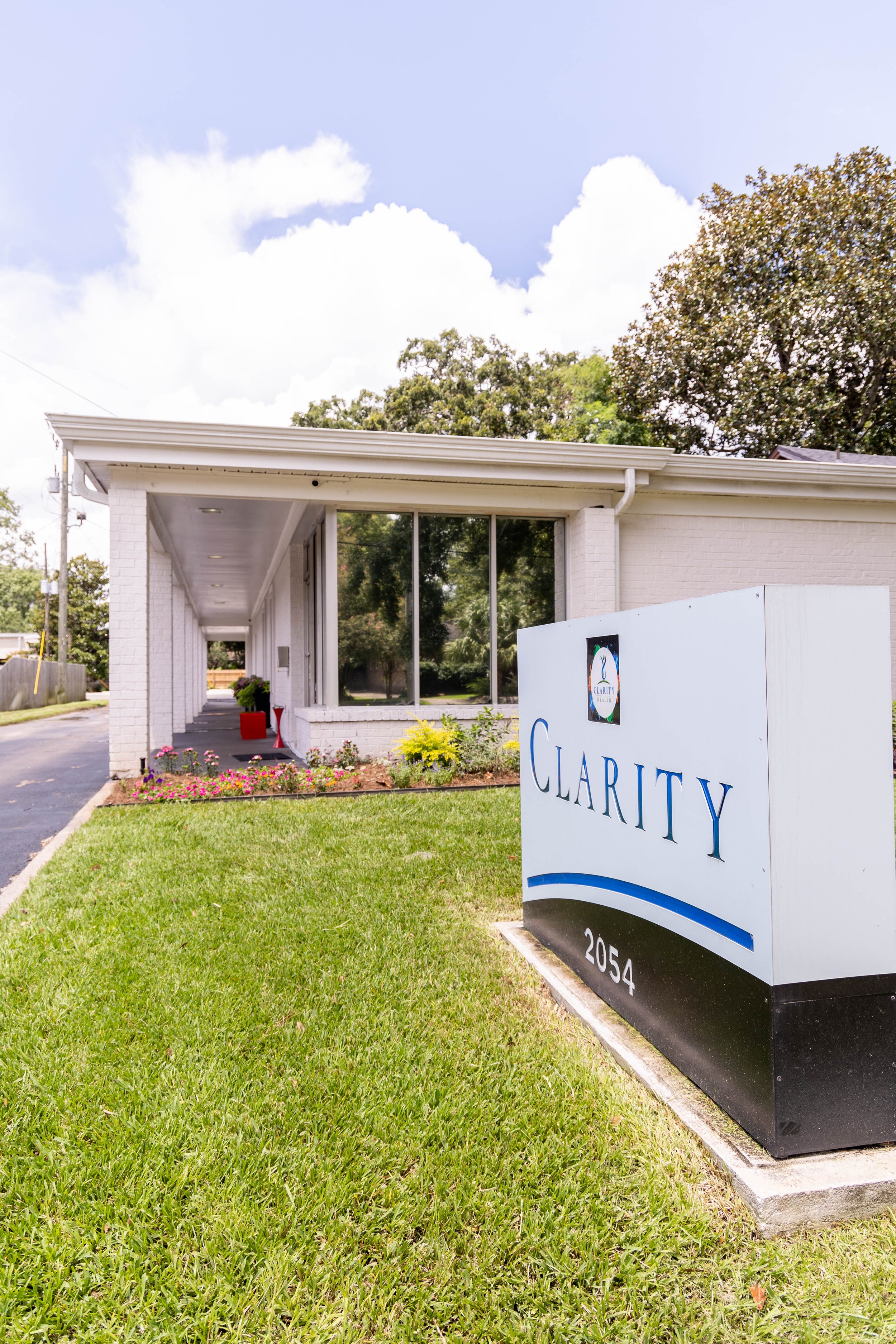PROOF POSITIVE
As the ease of lazy summer days fade into the hustle and bustle of the fall and holiday madness, this can easily be a recipe for a mental health disaster. Add the pressure of Instagram perfection or the paralysis from the cost of college, it can be too much for most anyone. Not out of the pandemic woods yet, we are still very much in what we’ve come to know as the mental health crisis. And yet, there’s so much negativity in regards to the field of psychology and getting help. When asked what he wishes more people understood about the field, Jack Carney, Ph.D., is eager to share! A Jack of all mental health trades, his insight is not only fascinating, it’s invaluable.
By Hayley Hill Photos Stevye Photography, StevyePhotography.com
As a licensed psychologist who provides psychological evaluations and consultations, Jack has seen and heard it all. Always up for a chat, we recently discussed the science of psychology. And when questioned if it is indeed a science, Jack responded, “I am so glad you asked this question as I am here to say that psychology is absolutely a science! While we all know there are those who argue it isn’t, nothing could be further from the truth. First of all, think of empirical observation where we actually watch and measure things happening. In psychology, we don’t sit around sipping tea and pondering why people do what they do. No, we roll up our sleeves and get data — just like any other science,” he enthusiastically explains.
As the founder of Mobile’s Clarity Health, he provides all sorts of testing, including aptitude testing. A particularly important consideration if you’re contemplating whether or not college is the right fit for your child or if you or anyone you care about is considering switching careers for example. Used to measure an individual’s natural strengths, aptitude tests look at an individual’s inherent skills, and their ability to apply them in new situations. All scientifically designed around principles of psychology, they simply offer an objective and reliable way of assessing one’s core strengths.
A special arena for Jack, he shares, “Clinical psychology testing and assessment is where the rubber meets the road. It’s the laboratory where the scientific principles of psychology meet real-life applications. Imagine we’re on a treasure hunt. Each person is a complex labyrinth with a unique combination of intelligence, personality, achievements, and challenges. And as a clinical psychologist, it’s my job to decipher the map.”
More specifically, Jack likes to have client’s engage in computer based performance testing to see how quick they are, what they can remember, and even measure how they respond to questions or prompts. Further explaining, Jack shares, “From there, this data is compared to a normative sample. Then there’s hypothesis testing - not the kind where you guess who ate the last slice of pizza. We look at relationships between variables. Then we set about testing these hypotheses, running rigorous experiments. There is some detective work but it is grounded in statistics.”
““There’s nothing more satisfying than seeing someone flourish as they journey through their life maze and towards their goals.””
And of course, let’s not forget replicability. “In psychology, just like in cooking, it’s important to make sure your results aren’t a one-time wonder. Can you imagine if we only had one successful gumbo, and every subsequent attempt fell flat? That’s why our studies should be repeatable by others, to ensure our findings are as reliable as grandma’s secret recipe,” Jack tells us.
So, therefore in this data driven world — psychology is clearly no exception. “It reminds me of my math classes in data analysis. Yes, psychology embraces the world of statistics to interpret the data we collect. If we think of our data as a jigsaw puzzle, statistical analysis helps us fit the pieces together to form a clear picture. You might be wondering what happens once we’ve collected all our data and analyzed it? Well, we don’t just stick it in a drawer and forget about it. We publish it, usually in scholarly journals, but not before it goes through the gauntlet of peer review. This is where our fellow psychologists scrutinize our work — a process about as comfortable as walking on hot coals, but it ensures that our work is up to the highest scientific standards,” says Jack.
When talking about intelligence testing, Jack likes to think of it as a GPS System, sharing, “These assessments help us understand a person’s cognitive strengths and weaknesses, their problem-solving abilities, and, most importantly, their potential. For example, I might want to know if a patient is a verbal whiz or if they excel in spatial reasoning because the difference is like asking,”Should we take the highway or the scenic route?”
Gaining even more respect for the field, there’s also achievement tests. “These are like milestones on the journey, showing us how far the person has come in certain areas such as reading, writing, or math skills. These provide answers as to how well our adventurer is handling the challenges along the way, what they have learned, and how they are using their knowledge. And of course, we can’t forget personality tests. These give us insight into a person’s character traits, behaviors, and emotional patterns. It’s like getting to know the quirks and habits of our fellow travelers, and figuring out how they might react to different situations on our treasure hunt.”
While it seems like a lot to garner from a few tests, you may be curious as to how it helps improve an individual’s situation in life. Jack has the answer. “Once we’ve gathered all this information, we can develop a tailored roadmap for our adventurous individual. For example, if the intelligence test indicates a person is struggling with problem-solving skills, we can work on strategies to manage that. If the achievement test shows they’re acing reading but lagging in math, we can focus on boosting their math skills. And if the personality test reveals they tend to get stressed easily, we can work on coping mechanisms to manage stress better.”
For Jack, clinical psychology testing and assessment isn’t just about putting labels on people or fitting them into boxes. “No! It’s about understanding each person as a unique individual, with their own set of strengths, weaknesses, and quirks. And once we’ve got that understanding, we can help them navigate their labyrinth, overcome their challenges, and find their own personal treasure. There’s nothing more satisfying than seeing someone flourish as they journey through their life maze and towards their goals,” Jack beams.
So while this all may seem a bit overwhelming, Jack’s years of continuous education point to the fact that psychology is indeed a science. And it’s one that we may all need a little help navigating. With not only the mental health stigmas alive and kicking, they also exist in terms of the methods used to help people. But as parents, caregivers to loved ones, and self-help seekers, assistance to guide us through tough decisions and circumstances is out there. Knowledge certainly is power. Meeting people like Jack who are so committed to helping others is healing in itself and we think it’s safe to say that he certainly blinded us with science.
Clarity Health LLC
2054 Dauphin Street, Mobile
251.635.4541
ClarityHealth.com











